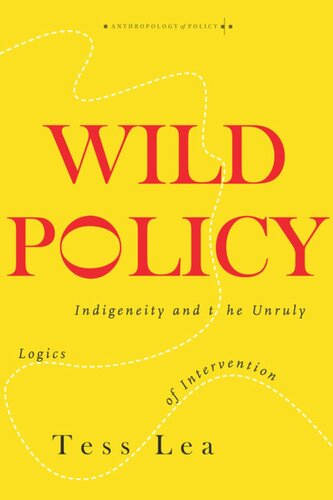

Most ebook files are in PDF format, so you can easily read them using various software such as Foxit Reader or directly on the Google Chrome browser.
Some ebook files are released by publishers in other formats such as .awz, .mobi, .epub, .fb2, etc. You may need to install specific software to read these formats on mobile/PC, such as Calibre.
Please read the tutorial at this link: https://ebookbell.com/faq
We offer FREE conversion to the popular formats you request; however, this may take some time. Therefore, right after payment, please email us, and we will try to provide the service as quickly as possible.
For some exceptional file formats or broken links (if any), please refrain from opening any disputes. Instead, email us first, and we will try to assist within a maximum of 6 hours.
EbookBell Team

4.7
66 reviewsCan there be good social policy? This book describes what happens to Indigenous policy when it targets the supposedly 'wild people' of regional and remote Australia. Tess Lea explores naturalized policy: policy unplugged, gone live, ramifying in everyday life, to show that it is policies that are wild, not the people being targeted. Lea turns the notion of unruliness on its head to reveal a policy-driven world dominated by short term political interests and their erratic, irrational effects, and by the less obvious protection of long-term interests in resource extraction and the liberal settler lifestyles this sustains. Wild Policy argues policies are not about undoing the big causes of enduring inequality, and do not ameliorate harms terribly well either—without yielding all hope.
Drawing on efforts across housing and infrastructure, resistant media-making, health, governance and land tenure battles in regional and remote Australia, Wild Policy looks at how the logics of intervention are formulated and what this reveals in answer to the question: why is it all so hard? Lea offers readers a layered, multi-relational approach called policy ecology to probe the related question, 'what is to be done?' Lea's case material will resonate with analysts across the world who deal with infrastructures, policy, technologies, mining, militarization, enduring colonial legacies, and the Anthropocene.